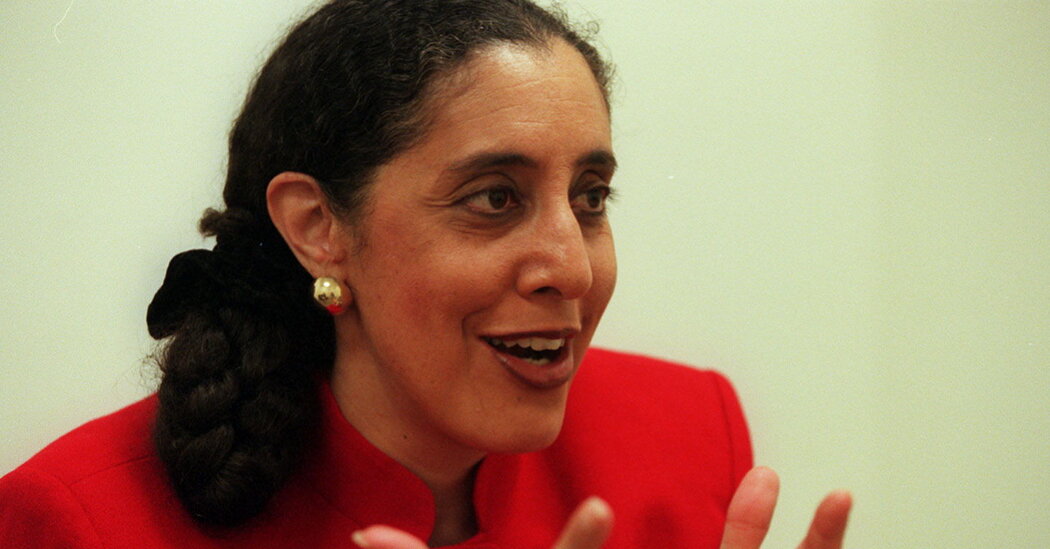Lani Guinier, a legal scholar whose ideas about voting rights and affirmative action led President Bill Clinton to nominate her in 1993 to be an as
Lani Guinier, a legal scholar whose ideas about voting rights and affirmative action led President Bill Clinton to nominate her in 1993 to be an assistant attorney general, only to withdraw her name two months later after Republicans launched a campaign against her, died on Friday. She was 71.
Her cousin Sherrie Russell-Brown confirmed the death but did not provide further details.
Descended from a long line of lawyers, Ms. Guinier made a name for herself in the 1980s as a challenging thinker about whether America’s legal institutions, even after the civil rights revolution of the 1960s, needed to change further to realize true democracy.
She argued, for example, that the principle of “one person, one vote” was insufficient in a system where the interests of minorities, racial or otherwise, were inevitably trampled by those of the majority, and she argued for a variety of alternatives.
She did so after a stint working in the civil rights division of the Department of Justice in the late 1970s under President Jimmy Carter. She left in 1981, when President Ronald Reagan took office, and worked for most of the decade at the Voting Rights Project of the NAACP Legal Defense Fund.
She later became a professor of law at the University of Pennsylvania. In 1998 she moved to Harvard Law School, where she became the first woman of color to receive tenure.
President Clinton nominated her for the post of assistant attorney general for civil rights in 1993. But she quickly came under fire from Republicans for her liberal views on voting rights and quotas, which they said she supported, though in fact she opposed them.
Although they took aim at her ideas, Professor Guinier’s opponents also made clear that it was a matter of opportunity. Still stinging from the Supreme Court nomination battles over Robert Bork and Clarence Thomas, they were looking for payback.
“Clinton has not had to expend any political capital on the issue of quotas,” Clint Bolick, a conservative lawyer and activist who helped lead the charge against her, told The New York Times in 1993, “and with her, we believe we could inflict a heavy political cost.”
President Clinton eventually bowed to pressure and withdrew her nomination in June 1993, calling some of her positions “anti-democratic.”
A complete obituary will appear shortly.
www.nytimes.com
